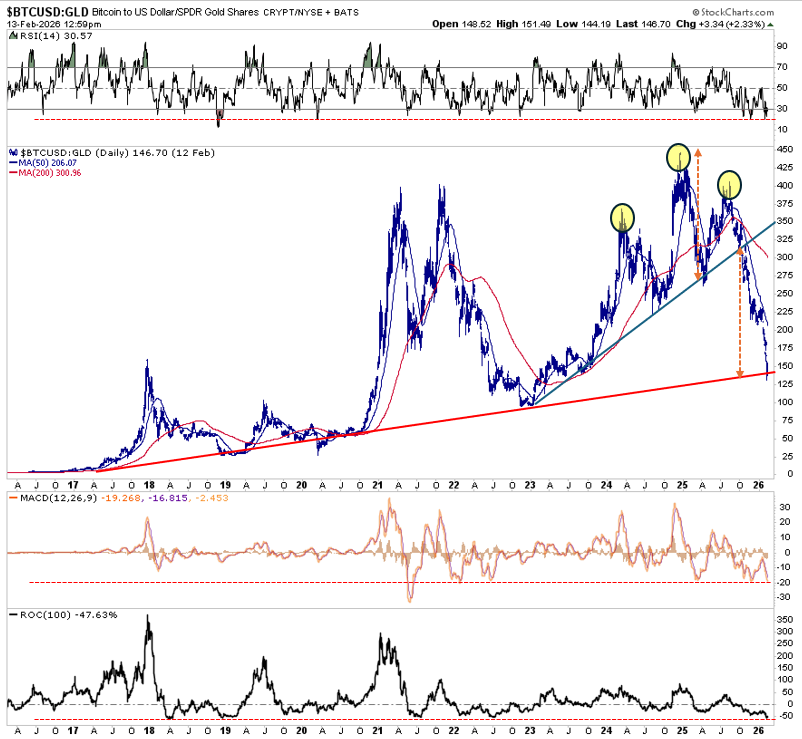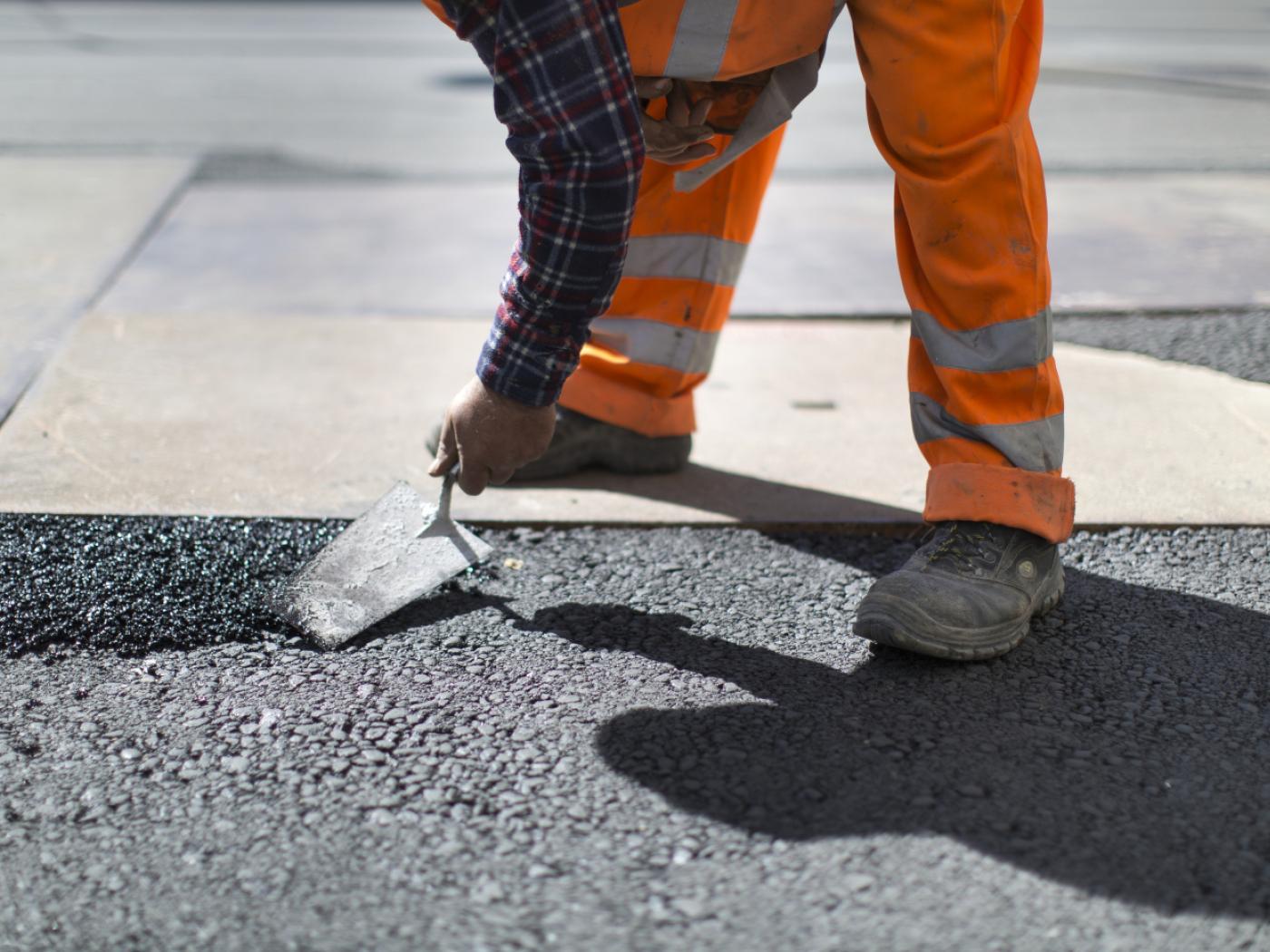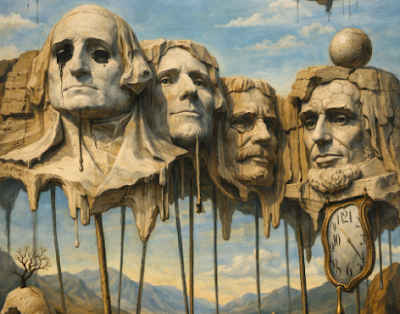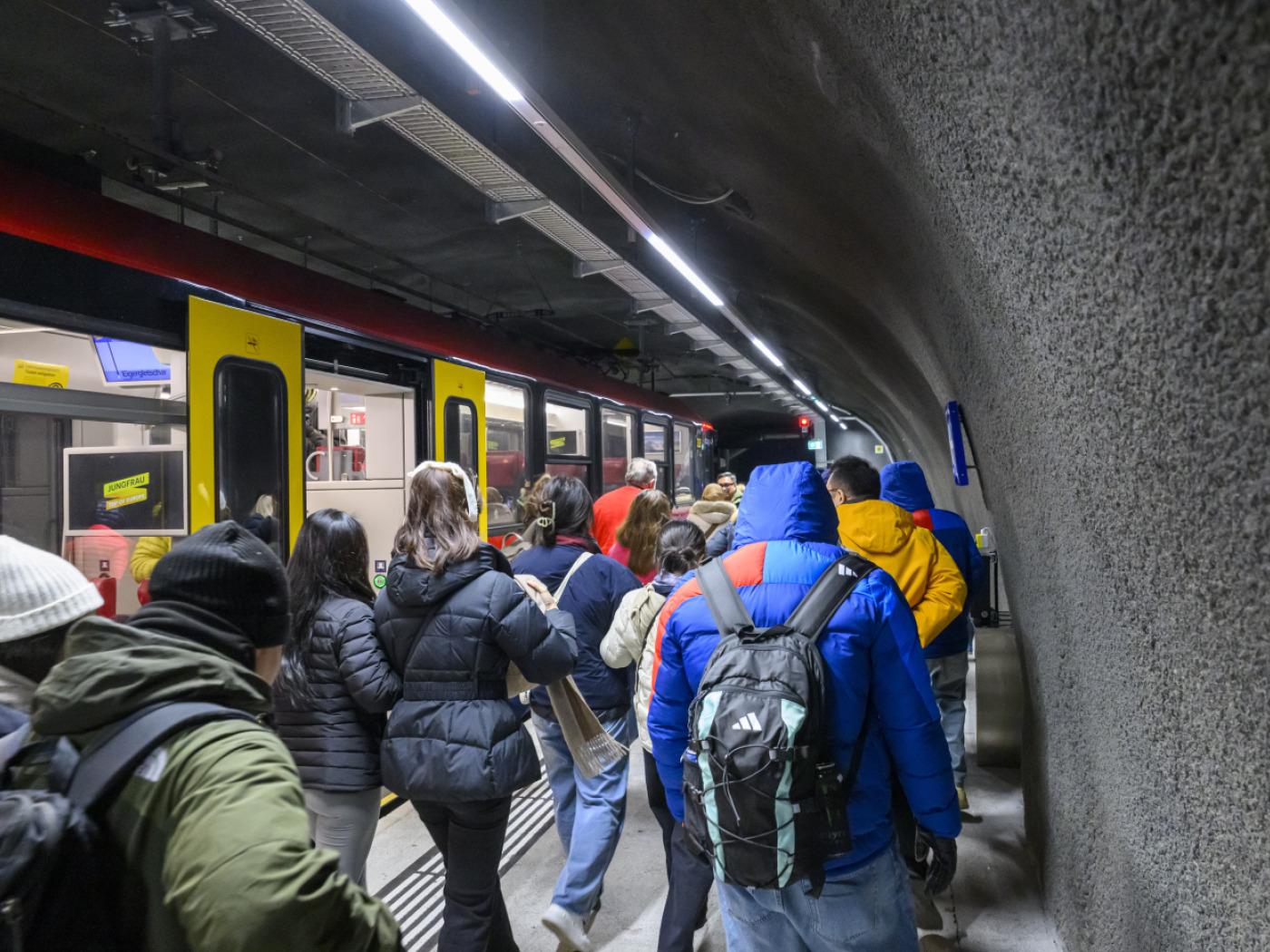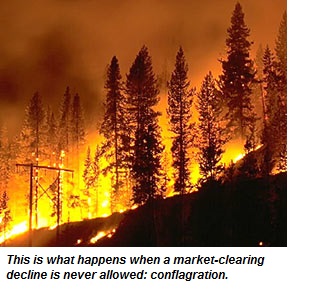 The core problem is the U.S. economy has been fully financialized, and so costs are unaffordable.
The core problem is the U.S. economy has been fully financialized, and so costs are unaffordable.
To understand the long-term consequences of the pandemic on Main Street and local tax revenues, we need to consider first and second order effects. The immediate consequences of lockdowns and changes in consumer behavior are first-order effects: closures of Main Street, job losses, massive Federal Reserve bailouts of the top 0.1%, loan programs for small businesses, stimulus checks to households that earned less than $200,000 last year, and so on.
The second-order effects cannot be bailed out or controlled by central authorities. Second-order effects are the result of consequences have their own consequences.
The first-order effects of the pandemic on Main Street are painfully obvious: small businesses that have barely kept their heads above water as costs have soared have laid off employees as they’ve closed their doors.
The second-order effects are still spooling out: how many businesses will close for good because the owners don’t want to risk losing everything by chancing re-opening? How many will give it the old college try and close a few weeks later as they conclude they can’t survive on 60% of their previous revenues? How many enjoy a brief spurt of business as everyone rushes back, but then reality kicks in and business starts sliding after the initial burst wears off?
How many will be unable to hire back everyone who was laid off?
As for local tax revenues based on local sales taxes, income taxes, business license fees, and property taxes: the first three will fall off a cliff, and if cities and counties respond to the drop in tax revenues by jacking up property taxes, this will only hasten the collapse of businesses that were already hanging on by a thread before the pandemic.
The federal government can bail out local governments this year, but what about next year, and every year after that? The hit to local tax revenues is permanent, as the economy became dependent on debt and financialization pushed costs up.
Amazon and online sellers don’t pay local taxes, except in the locales where their fulfillment centers are located. Yes, online sellers pay state and local sales taxes, but these sales are for goods; most of the small businesses that have supported local tax revenues are services: bars, cafes, restaurants, etc. As these close for good, the likelihood of new businesses taking on the same high costs (rent, fees, labor, overhead, etc.) is near-zero, and anyone foolish enough to try will be bankrupted in short order.
Now that work-at-home has been institutionalized, the private sector no longer needs millions of square feet of office space. As revenues drop and profits vanish, businesses will be seeking to cut costs, and vacating unused office space is the obvious first step.
What’s the value of empty commercial space? If demand is near-zero, the value is also near-zero. Local government will be desperate to raise tax revenues, and they will naturally look at bubble-era valuations on all real estate as a cash cow. But they will find that raising property taxes on money-losing properties will only accelerate the rate of property-owner insolvencies.
At some point valuations will adjust down to reality, and property taxes collected will adjust down accordingly. If municipalities think they can make up the losses by jacking up the taxes paid by the survivors, they will quickly find the ranks of the survivors thinned.
This doesn’t exhaust the second-order effects: once Main Street is half-empty, the attraction of the remaining businesses declines; there’s not enough to attract customers, and the virtuous-circle of sales rising for everyone because the district is lively and attractive reverses: the survivors struggle and give up, further hollowing out the district.
The core problem is the U.S. economy has been fully financialized, and so costs are unaffordable. The commercial property owner overpaid for the buildings with cheap borrowed money, and now the owner must collect nose-bleed high rents or he can’t make the mortgage and property tax payments.
Local governments spend every dime of tax revenues, as their costs are insanely high as well. They cannot survive a 10% decline in tax revenues, much less a 40% drop.
The metaphor I’ve used to explain this in the past is the Yellowstone forest fire. The deadwood of bad debt, extreme leverage, zombie companies and all the other fallen branches of financialization pile up, but the central banks no longer allow any creative destruction of unpayable debt and mis-allocated capital; every brush fire is instantly suppressed with more stimulus, more liquidity and lower interest rates.
As a result, the deadwood sapping the real economy of productivity and innovation is allowed to pile higher.
The only possible output of this suppression is an economy piled high with explosive risk. Eventually Nature supplies a lightning strike, and the resulting conflagration consumes the entire economy.
Full story here Are you the author? Previous post See more for Next postTags: newsletter



























